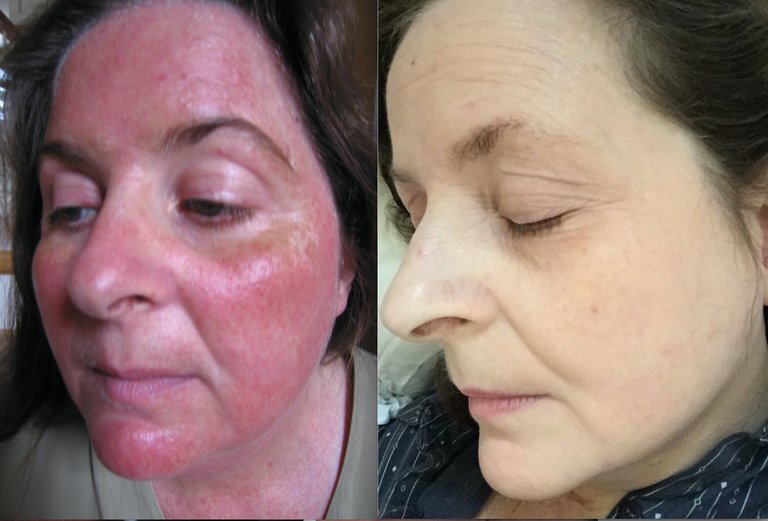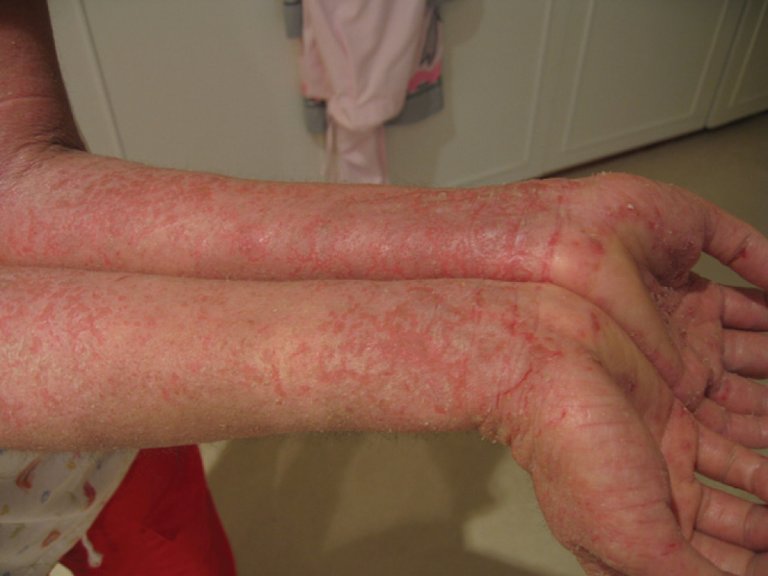Rash is one common skin problem and majority of the time it is associated with appearance but a lot of times, we could be wrong because while you might think that they have something to do with appearance, it could be something more.
A very classic example of when a rash has more medical intuition than appearance is in the case of Lupus. Rashes associated with lupus always spread across the cheeks and the nose and often forming a butterfly like shape. Lupus is a systemic autoimmune disease that affects every part of the body including the internal organs like the lungs the kidneys, and brain as well as external part of the body like Joints.

https://www.freemalaysiatoday.com
But people could mistake it to skin conditions like Rosacea which causes visible red vessels thereby causing redness as well as acne types of bumps. While Lupus has a lot to do with the overall health of the body, Rosecea is a cosmetic and appearance problem with no impact on the overall health of the patient.
Lupus rash do not appear in the nasal fold but Rosacea rash does and so, it is important that when a patient notice that their rash isn't appearing on the nasal fold, they visit the doctor. When a person has a rash and also suffer from symptoms related to the inflammation caused by lupus then visiting the hospital will be the best choice. Signs and symptoms will include fever, seizure, oral ulcer, thrombocytopenia, joint involvement and so on.
Another condition that can lead to a rash is Vasculitis which is a condition that causes inflammation in blood vessels leading to irreversible damage in internal organs. To confirm if the blood is in the blood vessels, doctors could use a glass slide or a regular glass. Pressure is applied on the glass to the skin to see if the rash will disappear and when it is done, it actually disappears but returns when the pressure is removed.
This is known as Blanchable rash which explains that there are dilated blood vessels with blood at the surface of the skin and these blood vessels are the cause for the red color but if after presssure, the red color doesn't disappear, then the blood has left the blood vessels which can be as a result of low platelet or as a result of infection. Cases where the blood doesn't disappear are cases associated with meningococcemia and other autoimmune diseases where the blood vessels are destroyed by the immune system.
Rashes like Psoriasis can also be confusing as they can look like rash of eczema, creating an itchy patch on the body. Eczema is a skin condition that affects the flexor surfaces of the body, face, and neck but it can be mistaken with Psoriasis that affects the extensor surfaces of the body. These surfaces are areas that stretch such as the elbow, and knees, and they can also appear on palms, soles of feet, and scalps.
Differentiating this two can be very simple but one needs to know where they are to be able to identify them. Eczema would exist in the inside of the flexor such as inside of the elbow, and they appear inflamed, red, and itchy, while psoriasis will appear at the outside of the elbow and it appears as a thick white scaly surface on the red patches on the skin. People who suffer from eczema have a chance of suffering from Hay fever and Asthma, while people with Psoriasis are likely to develop heart disease, and arthritis.
Either you have a small rash, or you have a disturbing one, it is advisable to visit the nearest hospital around you or visit a reputable one where you can be checked properly and diagnosed accurately because while you might think it is just a simple rash, it might mean a whole lot that you really did not even know it is. Proper tests and diagnosis is important so as not to handle certain health issues with levity.
Read More
- https://www.ncbi.nlm.nih.gov/books/NBK459474/
- https://emedicine.medscape.com/article/332244-clinical?
- https://pmc.ncbi.nlm.nih.gov/articles/PMC5895357/
- https://www.niams.nih.gov/health-topics/rosacea
- https://dermnetnz.org/topics/rosacea
- https://www.nhlbi.nih.gov/health/vasculitis
- https://www.ncbi.nlm.nih.gov/books/NBK545186/
- https://www.ncbi.nlm.nih.gov/books/NBK534849/
- https://nationaleczema.org/eczema/
- https://www.nhs.uk/conditions/atopic-eczema/
- https://www.niams.nih.gov/health-topics/psoriasis
- https://dermnetnz.org/topics/psoriasis


 Follow
Follow 